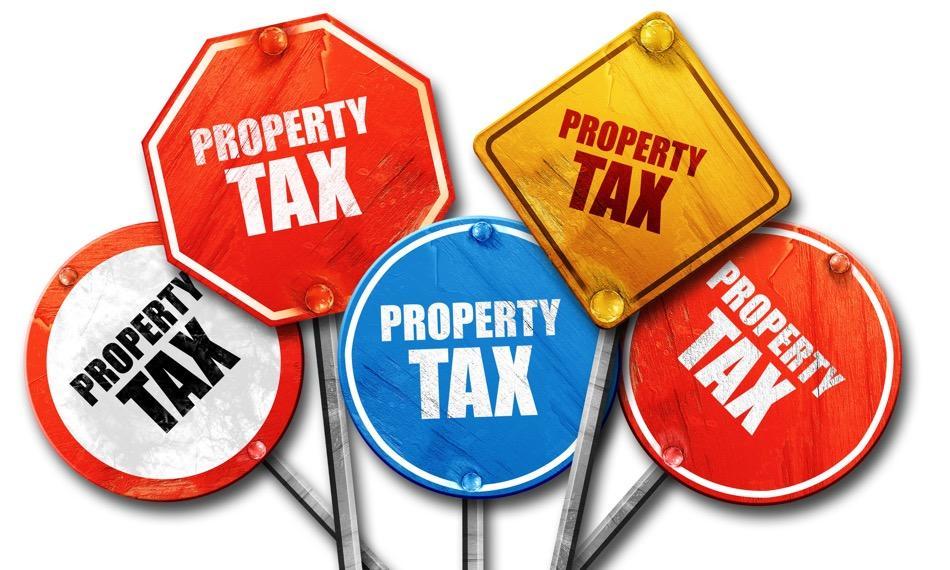Will the property tax reform bill passed by the legislature and signed by Governor Kim Reynolds this week solve the root cause of property tax increases of unchecked local government spending?
It’s too early to say just how impactful these new reforms will be, but this bill is an excellent first step and will add transparency to Iowa’s complex property tax system.
The best way to control the growth in local government spending will continue to be found through Iowans getting involved in the process and working to hold their elected officials accountable.
WHAT THIS BILL WILL DO:
- Recalculates Levy Rates Based on Budget Growth
Individual cities and counties will fall into three groups determined by their tax base’s growth (taxable valuation). Through a formula, growing cities and counties will have the increase in their budget year maximum property tax revenue dollars reduced, and the general fund levy will be recalculated.
How this will save you money?
It’s complicated. Here are some examples from the Senate’s bill’s fiscal note that had a similar formula and how the new tax rate limits may work in different situations:
- Fast-growing city: The tax base grows 162.12%, and total property tax revenue increases 127.45%.
- Growing city: The tax base grows 30.89%, and total property tax revenue increases 30.89%
- Growing rural county: The tax base grows 30.68%, and total property tax revenue increases 13.00%
These examples show how total property tax revenue, not individual bills, may grow. In each case, the amount of property taxes paid by Iowans is probably lower than it would have been without the recalculation formula.
- Direct Notification of Tax Bill Increases (ITR Solution)
Iowans will now clearly find out how much city councils and county supervisors want to increase property tax bills before it is too late. Property owners will now receive a parcel-specific notice of their tax bill’s proposed increase and the public budget hearing’s date, time, and location.
How this will save you money:
Direct notification is dependent on voters attending public hearings and confronting local elected officials. Then, those elected officials can choose to listen or ignore their constituents. The root of all property tax growth is local government spending; therefore, the best defense to rising tax bills is for citizens to engage in the process and hold their elected representatives accountable.
- Levy Consolidation
The bill consolidates some, but not all, smaller levies into the city and county general levy. Because consolidation may push the general levy beyond the existing levy cap, the bill includes a process to bring rates back down to the maximum.
How this will save you money:
Consolidation will increase transparency and help control the cost of city and county government. However, many levies are NOT impacted, including municipal transit, aviation authority, insurance premiums, local emergency management, EMS, liability, debt service, IPERS, law enforcement, police/fire retirement, ag land, flood and erosion, natural disaster, and pioneer cemetery.
- November-Only Bond Issues and Spending Questions (ITR Solution)
To ensure the highest participation of Iowa voters, bond issue elections will now only be held in November, the most recognized time to vote.
How this will save you money:
A higher percentage of the electorate will vote on bond issues that raise property tax bills. This might make it more difficult for bond issues to pass.
However, the bill also raises the threshold at which the need for a bond referendum is triggered. This change could make it easier for local governments to issue debt without taking those decisions to the voters. ITR will be monitoring the impact of this provision, and we will be watching if or when this gets abused.
- Elimination of the Public Education and Recreation Levy (PERL)
No new PERL levies will be approved.
How this will save you money:
The PERL levy is currently used by 29 school districts with a maximum rate of $0.135 per $1,000. Existing PERL levies will remain in force unless voters force a vote via petition. There are 303 districts that do not use the PERL levy.
- Expanded Property Tax Credits for Seniors and Veterans
Iowans 65 and older will have the homestead exemption increased $6,500. The military service property tax exemption will increase to $4,000.
How this will save you money:
This exemption will decrease the taxable valuation of property owned by eligible Iowans.
WHAT THIS BILL WILL NOT DO:
Perhaps the best part of the bill is what it does NOT include – a shift in some education funding from property taxes to the state’s General Fund with the Taxpayer Relief Fund (TRF). An earlier version of the House bill did include this provision.
It is bad policy for two reasons:
- Money flows into the TRF primarily from the overcollection of income tax. By most accounts, the governor and legislators will continue an income tax reduction conversation next year, so those dollars must be available. The TRF was created over a decade ago and expanded over the years for the purpose of cutting income taxes.
It violates the sound budget principle of using one-time funds for an ongoing expense. The TRF could be used until it is gone. After draining the TRF, the only thing left will be a hole in the state’s budget, and taxpayers will be on the hook for an ongoing obligation.
WHAT’S NEXT?
These reforms will take effect before the new assessments received last month are used in calculating property tax bills Iowans will receive in September 2024 and March 2025.
Be prepared, this legislation does not guarantee property tax bills will not increase. Multiple taxing authorities combine to make your total bill with school districts being the largest. This year, lawmakers focused slowing the growth, not cutting property tax revenue for cities and counties.
Once again, this bill increases transparency and is a good first step.
The dangers are that Iowans will not engage their local elected officials after receiving tax increase notices or legislators not taking more action in the future. ITR is committed to keeping you informed about when to speak up and what to say.
Stay updated and compare your community to others across Iowa at ITRLocal.org.
Cities, counties, and big-spending elected officials probably don’t hate this bill as much as we would like them to. But property tax reform has started, and it will be a multi-year process, just like Iowa’s income tax reform.
It’s imperative lawmakers don’t become complacent.
These tax dollars don’t belong to the city, county, or school district; they belong to the taxpayers. Iowa taxpayers expect more property tax reform that leads to real property tax relief.
















